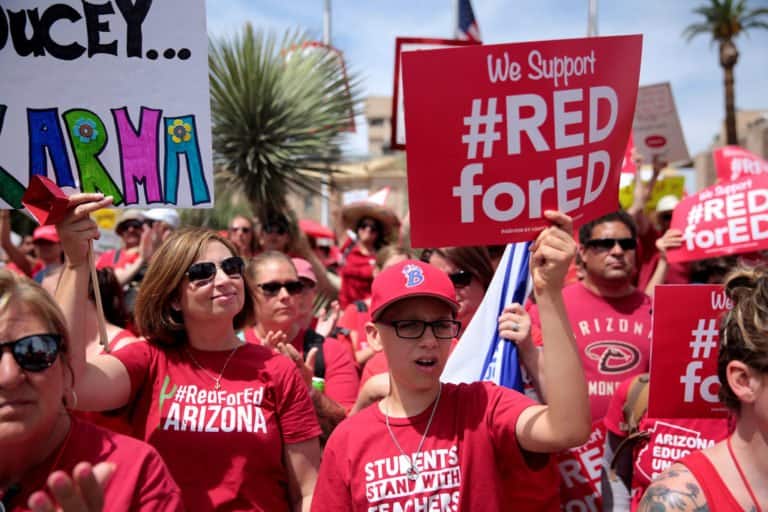
Jonathan R. Harkavy has taught labor and employment law at Wake Forest School of Law and corporate finance at Duke Law School and the University of North Carolina at Chapel Hill School of Law. During the summers of 2018 and 2019, he has been a visiting research fellow in the Labor and Worklife Program at Harvard Law School.
Applying its state constitution’s “fruits of their own labor” clause, the North Carolina Court of Appeals recently took another step toward workplace justice for governmental employees. The Court ruled that a discharged city employee had alleged a colorable violation by his employer of North Carolina’s constitutional provision ensuring “the enjoyment of the fruits of their own labor.” This ruling remarkably expands the scope of state constitutional protection beyond a prior application solely to workplace promotions in Tully v. City of Wilmington, as previously noted in this blog.
As Aubrey Sparks wrote for OnLabor in 2018, the “undervalued and underused . . . . strategy of using state constitutions to supplement federal protections for workers” could help secure workplace equity in ways that federal regulation and state legislation do not contemplate. Indeed, four decades before Sparks’s post, no lesser authority than Justice William Brennan wrote in a Harvard Law Review article:
“State constitutions, too, are a font of individual liberties, their protections often extending beyond those required by the Supreme Court’s interpretation of federal law. The legal revolution which has brought federal law to the fore must not be allowed to inhibit the independent protective force of state law—for without it, the full realization of our liberties cannot be guaranteed.”
Now, for the second time in four years, North Carolina’s appellate courts have taken seriously Justice Brennan’s plea by invoking its state constitution as a source of protection for municipal employees. And, this time North Carolina’s “fruits of their own labor” clause was held to cover discharges, the most critical aspect of employment. The compelling facts of this new case are summarized below.
On June 28, 2016, the Durham Police Department tried to serve an arrest warrant on Julius Smoot, but discovered that Smoot had barricaded himself in an upstairs bedroom of his apartment. Smoot yelled that he had a gun and would use it on himself in ten minutes unless he was allowed to see his wife and son. The DPD officers retreated and requested a hostage negotiator. Sergeant Michael Mole’, the only hostage negotiator on duty, had received negotiation training but had never handled an armed and barricaded subject.
Mole’ arrived at Smoot’s apartment five minutes before the deadline, and during the ensuing negotiations Smoot accidentally discharged his gun. Instead of giving up, Sergeant Mole’ continued to engage with Smoot. After considerable time, Smoot told Mole’ that he planned to smoke a “blunt” (marijuana cigarette). Reluctant to allow an armed, barricaded, and antsy subject to impair his mental state any further, Sergeant Mole’ asked Smoot to refrain from smoking the blunt, promising Smoot that if he disarmed and peacefully surrendered, he would be allowed to smoke it. Smoot then dropped his gun, handcuffed himself, and surrendered to Sergeant Mole’ on the spot. While handcuffed, Smoot asked for his lighter and a pack of legal cigarettes on a nearby table. When Mole’ handed those items to him, Smoot then pulled a blunt from behind his ear, lit it with the lighter, and smoked about half of it.
Shortly after Smoot’s arrest, the DPD launched an investigation of Mole’s actions. Months later, DPD informed Mole’ in writing that a predisciplinary hearing would take place the next day, despite Durham’s written policy requiring advance notice of at least three days. Following the hearing, Mole’s supervisors recommended that he receive a reprimand. But the City fired him. Mole’ filed a complaint in state court alleging that Durham had violated his state constitutional rights to due process, equal protection, and the fruits of his labor. The trial court granted the City’s motion to dismiss the complaint on all three counts.
The North Carolina Court of Appeals affirmed dismissal of the due process and equal protection claims because of existing adverse precedent. In a carefully crafted opinion by Judge Lucy Inman, however, the Court unanimously reversed dismissal of Mole’s “fruits of their own labor” claim, holding that he had alleged a colorable violation of the following provision of the North Carolina Constitution (emphasis added):
[Article I] Section 1. The equality and rights of persons.
We hold it to be self-evident that all persons are created equal; that they are endowed by their Creator with certain inalienable rights; that among these are life, liberty, the enjoyment of the fruits of their own labor, and the pursuit of happiness.
Judge Inman’s opinion concluded that Mole’s discharge claim was not foreclosed by the state Supreme Court’s narrow decision in Tully applying the “fruits of their own labor” provision to an irregularity in a municipality’s promotion process. Finding that the logic of regulating the “employment promotional process” applies with equal force to regulating the disciplinary process, the Court ruled that Durham’s failure to give Mole’ at least three days’ notice of the predisciplinary hearing violated the City’s clearly established internal policy furthering its legitimate governmental interest in treating employees fairly. Further, Mole’ was injured as a consequence of that violation, because he was deprived of critical preparation time for the hearing. Accordingly, the Court found Mole’s complaint sufficiently pled under the Tully precedent.
Made a part of the North Carolina Constitution during Reconstruction in 1868, the same year the Fourteenth Amendment was ratified, the “fruits of their own labor” clause took effect just as formerly enslaved persons were allowed to work for their own benefit. Yet, the clause apparently was never applied as a source of individual employee protection in the workplace until 150 years later in Tully. To be sure, as Judge Inman’s opinion explains, North Carolina’s courts have utilized the clause to protect the right to earn a livelihood by regulating business and professional licensing to promote public good or avoid public harm. Also, where local ordinances have imposed an arbitrary cap on an entrepreneur’s fees, the clause has been utilized as a means of escaping such regulation. And now, the Tully and Mole’ decisions mark a return to what appears to be the simple original intent of the “fruits of their own labor” clause to ensure justice for individual workers in the workplace itself.
The significance of Judge Inman’s opinion in Mole’ is difficult to overstate. After decades of disregard, some lawyers are beginning to notice — and a few courts are beginning to utilize — state constitutional protections in the workplace. Hopefully, this welcome development will continue to take root, as Justice Brennan suggested.








Daily News & Commentary
Start your day with our roundup of the latest labor developments. See all
July 4
The DOL scraps a Biden-era proposed rule to end subminimum wages for disabled workers; millions will lose access to Medicaid and SNAP due to new proof of work requirements; and states step up in the noncompete policy space.
July 3
California compromises with unions on housing; 11th Circuit rules against transgender teacher; Harvard removes hundreds from grad student union.
July 2
Block, Nanda, and Nayak argue that the NLRA is under attack, harming democracy; the EEOC files a motion to dismiss a lawsuit brought by former EEOC Commissioner Jocelyn Samuels; and SEIU Local 1000 strikes an agreement with the State of California to delay the state's return-to-office executive order for state workers.
July 1
In today’s news and commentary, the Department of Labor proposes to roll back minimum wage and overtime protections for home care workers, a federal judge dismissed a lawsuit by public defenders over a union’s Gaza statements, and Philadelphia’s largest municipal union is on strike for first time in nearly 40 years. On Monday, the U.S. […]
June 30
Antidiscrimination scholars question McDonnell Douglas, George Washington University Hospital bargained in bad faith, and NY regulators defend LPA dispensary law.
June 29
In today’s news and commentary, Trump v. CASA restricts nationwide injunctions, a preliminary injunction continues to stop DOL from shutting down Job Corps, and the minimum wage is set to rise in multiple cities and states. On Friday, the Supreme Court held in Trump v. CASA that universal injunctions “likely exceed the equitable authority that […]